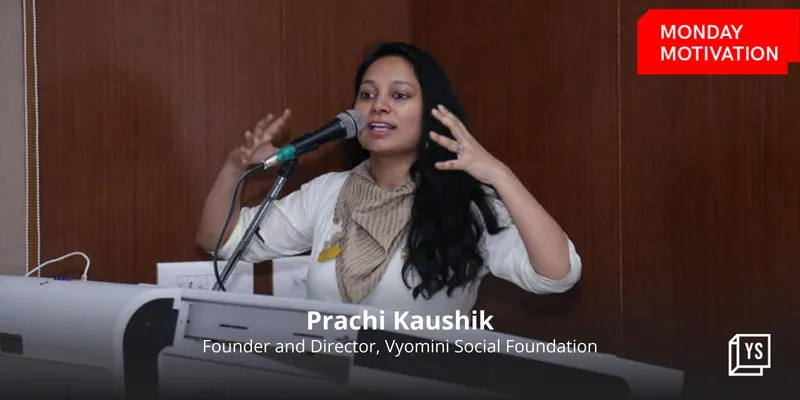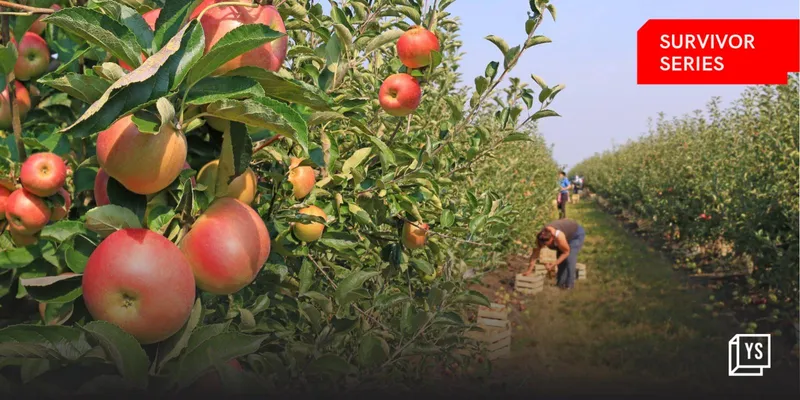From Women empowerment to the forefront of illegal forest trades: top SocialStories this week
This week on SocialStory, we discussed stories on women empowerment, the environment, battling depression, and education besides others.
There are many burning issues around us that become the topic of discussion from. SocialStory interacts with different personalities who are working on many of these issues and solutions accross domains.
This week, we shared the story of Poonam Gaur from Uttarakhand who overcame depression and what aided this process. Meanwhile, Prachi Kaushik shared stories of her journey of empowering women through her organisation.
This social entrepreneur brings menstrual health, women’s empowerment to the forefront
It’s 2022, and India is still reeling under the “taboo” that’s menstruation. Some women, though, remain undettered. This is Prachi Kaushik—our protagonist for today.

She has long battled with the stigma around periods and has been successful in creating a good narrative. Along the way, she has enabled women to be healthy, financially independent, and become entrepreneurs in their own right.
As the founder and director of Vyomini Social Foundation, a not-for-profit organisation, she aims to promote entrepreneurship among the underprivileged in India.
In the shadows of illegal trade
If we were to ask, ‘What are the top five illegal trades in the world’, drugs, weapons, and human trafficking are likely to make the list. Wildlife trade may be as obvious of a choice, let alone marine species such as sea cucumbers and sea fans. However, several reports over the past decade suggest that illegal wildlife trade is among the top five illegal trades globally.

A 2017 estimate by WWF suggests that this trade is worth over $20 billion per year. Tiger parts, pangolin scales, ivory, and rhino horn have been in the spotlight, rightfully. But the volume of marine species that are being traded in the shadows are becoming a cause of concern globally.
India’s story is no different. A recent study by WCS India highlighted the scale of illegal trade of marine species. It is feared that if this trade continues, we may lose some species forever and many beyond their ecologically functional thresholds. While the challenges are many, so are potential solutions.
How Reach to Teach is working with state governments to improve learning in remote areas
Gurugram-based social impact organisation Reach to Teach (RTT) has a simple task—to make learning joyful.
Besides being entitled to the right to quality education, RTT understands that children learn best when they are safe, happy, and engaged. Started as a British charity organisation, “RTT believes in enabling an environment and engaging teachers, school principals, parents, and the community to transform education in government schools,” Ratna Viswanathan, CEO of Reach To Teach, tells SocialStory.

The organisation partners with state governments to improve the quality of teaching and learning outcomes of government schools in India. Aligned with the National Education Policy (NEP) 2020, it uses an evidence-driven design approach to create sustainable teaching frameworks catering to the needs of that particular state.
Horticulture helped me battle depression and gave me hope to live
This week in Survivor Series, we share the story of Poonam Gaur from Uttarakhand who was able to progress in life with the help of agriculture.

I am Poonam Gaur, a farmer from Sunali village in Purola, Uttarakhand. My family means everything to me. We are a family of seven, consisting of my two sons, two daughters in law, and two grandchildren. In 2018, my husband passed due to cancer, which devastated me.
Within a year of my husband’s passing, I lost my mother too. And at the time, I slid into depression. I had lost the will and purpose to live, even more so as our family’s financial condition was deteriorating and I was helpless. It was hard for me to find the motivation to do anything.
Edited by Akanksha Sarma






